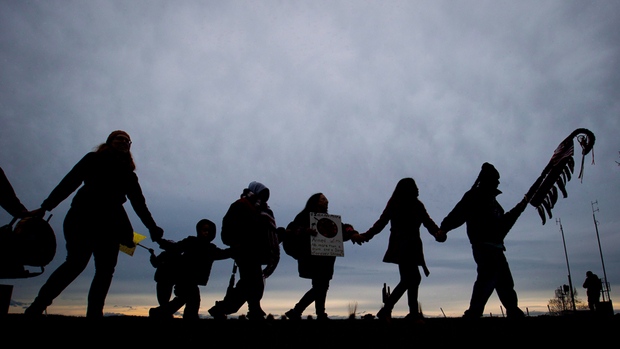The third week of September marked McGill’s Indigenous Awareness Week. The Faculty Club lecture on Thursday, September 22nd served a dual purpose: the McGill Institute for the Study of Canada (MISC) introduced its new director Andrew Potter, and a new Professor of Practice, Dr. Tim Raybould. More importantly, the talk contributed to an ongoing conversation surrounding the rights of indigenous communities.
North America and Indigenous Rights
Dr. Raybould’s “Implementing the United Nations Declaration on the Rights of Indigenous Peoples: Opportunities and Challenges” is topical in the larger context of North American politics, where issues such as the Dakota access pipeline highlight the fact that more concrete action has yet to take effect. Considering the pressure faced by Prime Minister Justin Trudeau to honour his promises to First Nations, Canada may soon have to learn how to navigate the challenges of implementing policy that benefits and empowers indigenous communities.
“Some people are calling it ‘The Age of Recognition,’” Raybould said, referring to what he considers to be increased awareness of and attention to indigenous issues. However, Raybould maintains that the transition from government control to indigenous agency is a very difficult one.
“Documents are just words on paper,” he stated. Even documents such as the UN Declaration on the Rights of Indigenous Peoples, because they are not legislative, “are a means to an end and not an end in themselves”, said Raybould. Although these statements are important steps towards greater public awareness, we are far from being active agents in the fight for indigenous rights. “[There is] an incredible amount of work to be done,” Raybould says, but “real progress can be made.”
Past and Future Policy
For example, the UN declaration was adopted by Canada in 2016 (nine years after it was adopted by the General Assembly). Raybould says the declaration “created a convention where laws that affect people’s lives and rights can be consulted”. Although it may seem obvious now, the document has set an important standard for the international community within Canada’s borders.
Some obstacles remain to implementing the UN document in Canada: it fails to specify a process for fixing the damage done by the Indian Act, empowering indigenous communities to decide who is indigenous, or –most importantly, according to Raybould— setting up the infrastructure and mechanisms to allow indigenous peoples support as they decolonize.
A Positive Note
“There is a link between these documents […] and actual people’s lives on the ground,” Raybould told the audience, taking a copy of the UN declaration in hand. “Work is already being done, […] and it’s incredibly empowering.”
The McGill Institute of Canada offers a wide variety of lectures, including more concerning the rights and struggles of indigenous peoples, but as Raybould states in an interview with the McGill Reporter: “The story of the transition (legal, social and political) that is taking place in Canada as First Nations deconstruct their colonial past and rebuild […], in my opinion, requires more robust academic consideration.” Although there are challenges ahead, the McGill community can look forward to many opportunities to inform ourselves and be active supporters of change.


